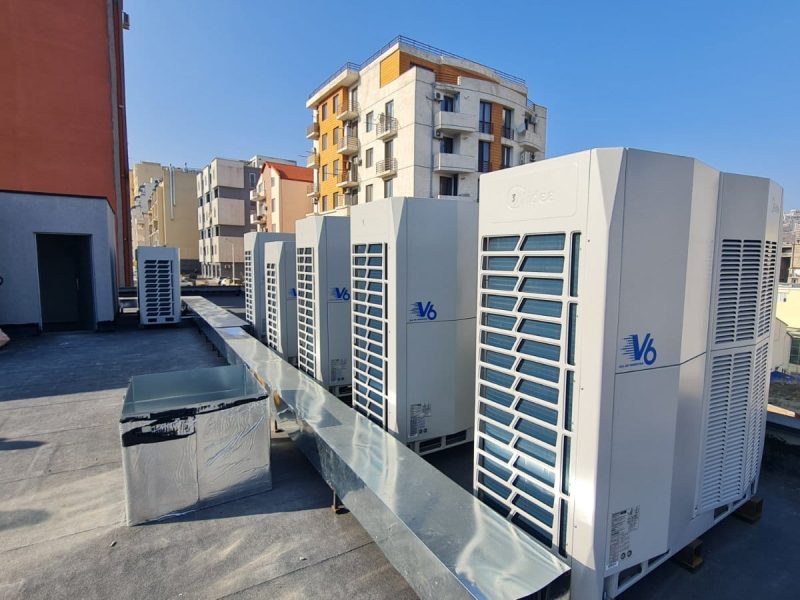
What is an HVAC System: A Comprehensive Guide by Fanturk
In the world of modern comfort and convenience, the term “HVAC system” is frequently used, but its full significance and functions might not be entirely clear to everyone. Fanturk is here to shed light on this essential technology that plays a pivotal role in keeping our indoor environments comfortable and conducive. This article will provide an in-depth understanding of what an HVAC system is, how it works, and its vital components.
What is an HVAC System?
HVAC stands for Heating, Ventilation, and Air Conditioning. An HVAC system is a sophisticated network of equipment and components designed to regulate indoor temperature, humidity, and air quality to create a comfortable and healthy living or working environment. It’s a comprehensive solution that addresses the heating and cooling needs of residential, commercial, and industrial spaces, ensuring optimal comfort and energy efficiency.
Components of an HVAC System
- Heating: The heating component of an HVAC system is responsible for generating warmth during colder months. It utilizes various methods, including furnaces, boilers, and heat pumps, to distribute heat throughout the space.
- Ventilation: Ventilation involves the exchange of indoor and outdoor air to maintain air quality. Proper ventilation removes contaminants, odors, and moisture while ensuring a steady supply of fresh air. It prevents the buildup of stale air and contributes to a healthy indoor environment.
- Air Conditioning: Air conditioning is a crucial aspect of an HVAC system, especially in warmer climates. It involves cooling the indoor air to provide a comfortable temperature. Air conditioners use refrigerants to absorb heat from indoor air and release it outside, effectively lowering the temperature.
- Ductwork: Ductwork serves as the pathway for air to travel between the HVAC system and different areas of a building. Properly designed and installed ductwork ensures efficient air distribution and maintains consistent temperature and air quality throughout the space.
- Thermostats and Controls: Thermostats and controls are the brains of an HVAC system. They allow users to set and regulate indoor temperatures according to their preferences. Modern thermostats offer advanced features, such as programmable settings and remote access, contributing to energy savings.
Benefits of an HVAC System
- Enhanced Comfort: An HVAC system provides precise control over indoor temperature and humidity, ensuring a comfortable living or working environment year-round.
- Improved Air Quality: Proper ventilation and air filtration in HVAC systems help remove allergens, pollutants, and contaminants, leading to improved indoor air quality.
- Energy Efficiency: Many modern HVAC systems are designed with energy efficiency in mind, reducing energy consumption and lowering utility bills.
- Health and Wellbeing: A well-maintained HVAC system contributes to a healthier indoor environment by minimizing the presence of mold, bacteria, and other harmful agents.
- Versatility: HVAC systems are versatile and can be customized to fit various spaces, whether it’s a small residential unit or a large commercial building.
How Does an HVAC System Work?
An HVAC system works through a carefully orchestrated process that involves several key steps:
- Air Intake and Filtration: The system draws air from the environment, and the air is passed through filters to remove dust, pollen, and other particles.
- Heating or Cooling: Depending on the desired indoor temperature, the HVAC system activates the heating or cooling component. For heating, the system generates warmth, while for cooling, it removes heat from the air.
- Air Distribution: The conditioned air is distributed throughout the space via ductwork and vents, ensuring even airflow.
- Temperature Regulation: Thermostats and controls monitor indoor temperature and adjust system operations to maintain the desired comfort level.
- Humidity Control: In areas with high humidity, the HVAC system may include a dehumidification component to maintain optimal humidity levels.
Conclusion
In the world of modern comfort, HVAC systems are the unsung heroes working diligently behind the scenes to create comfortable, healthy, and enjoyable indoor environments. Fanturk recognizes the importance of HVAC systems and their impact on our daily lives. By providing efficient heating, ventilation, and air conditioning solutions, HVAC systems contribute to our overall wellbeing, making our spaces havens of comfort and relaxation. Whether it’s the chilly days of winter or the scorching heat of summer, an HVAC system ensures that the climate inside remains just right.
